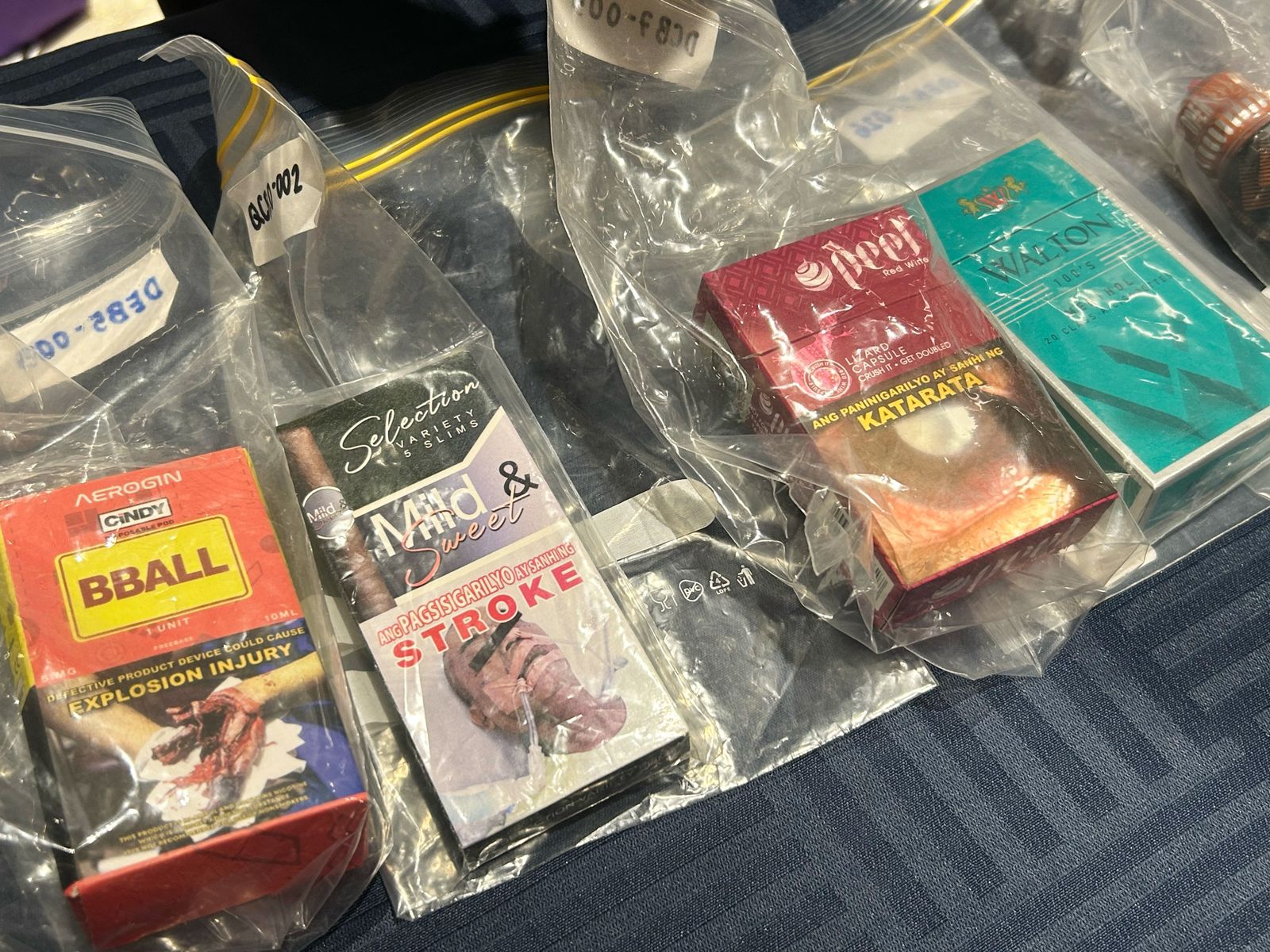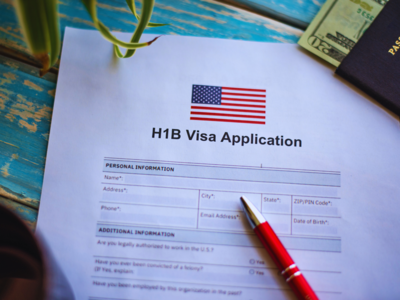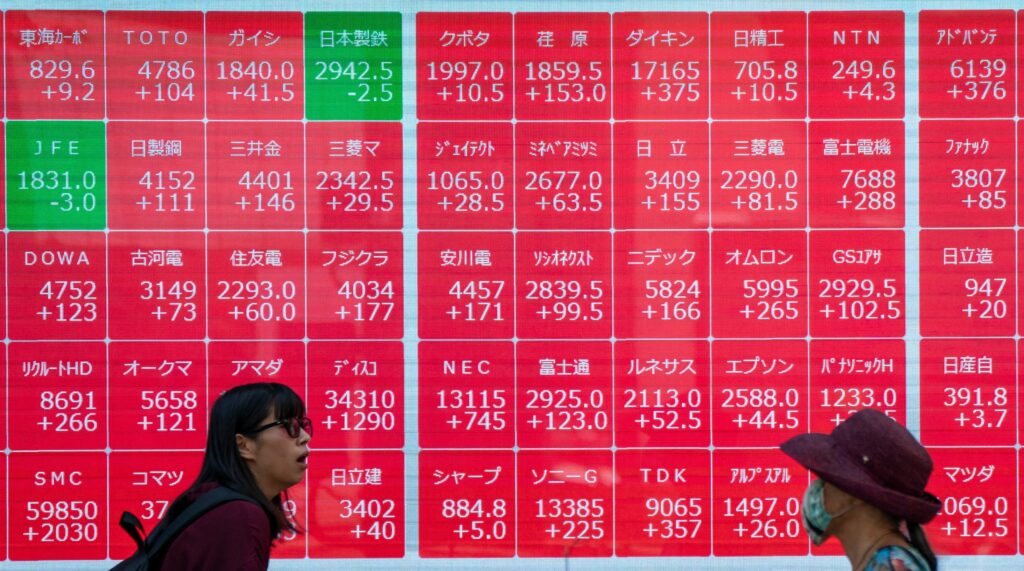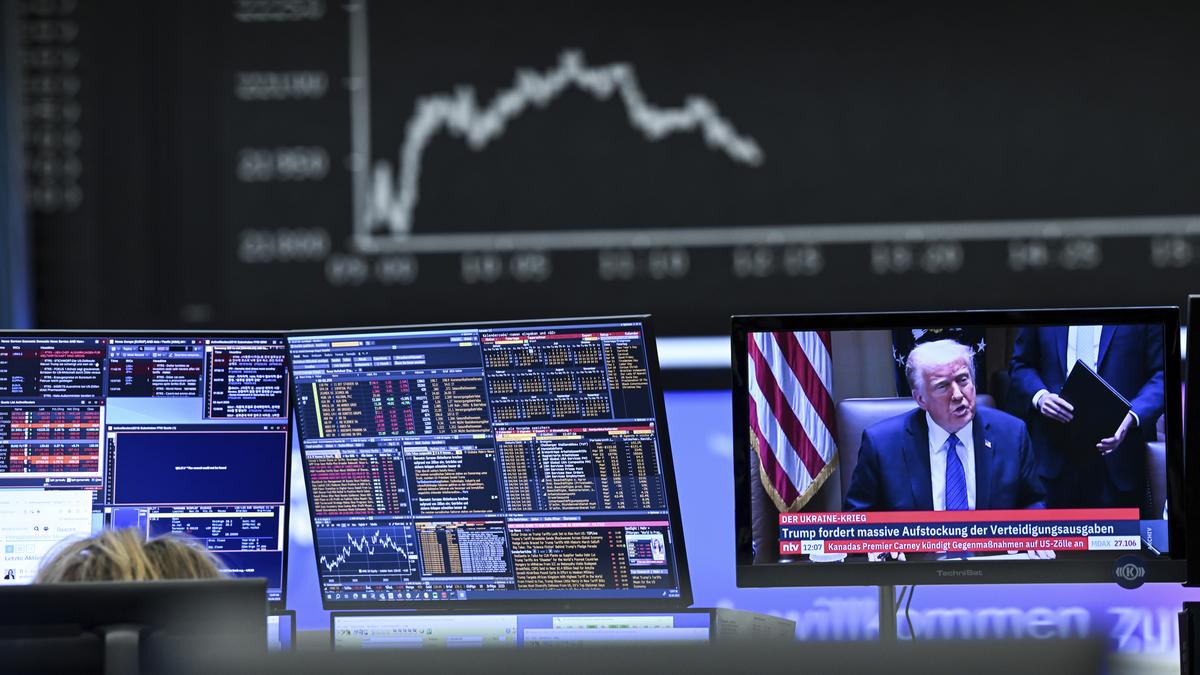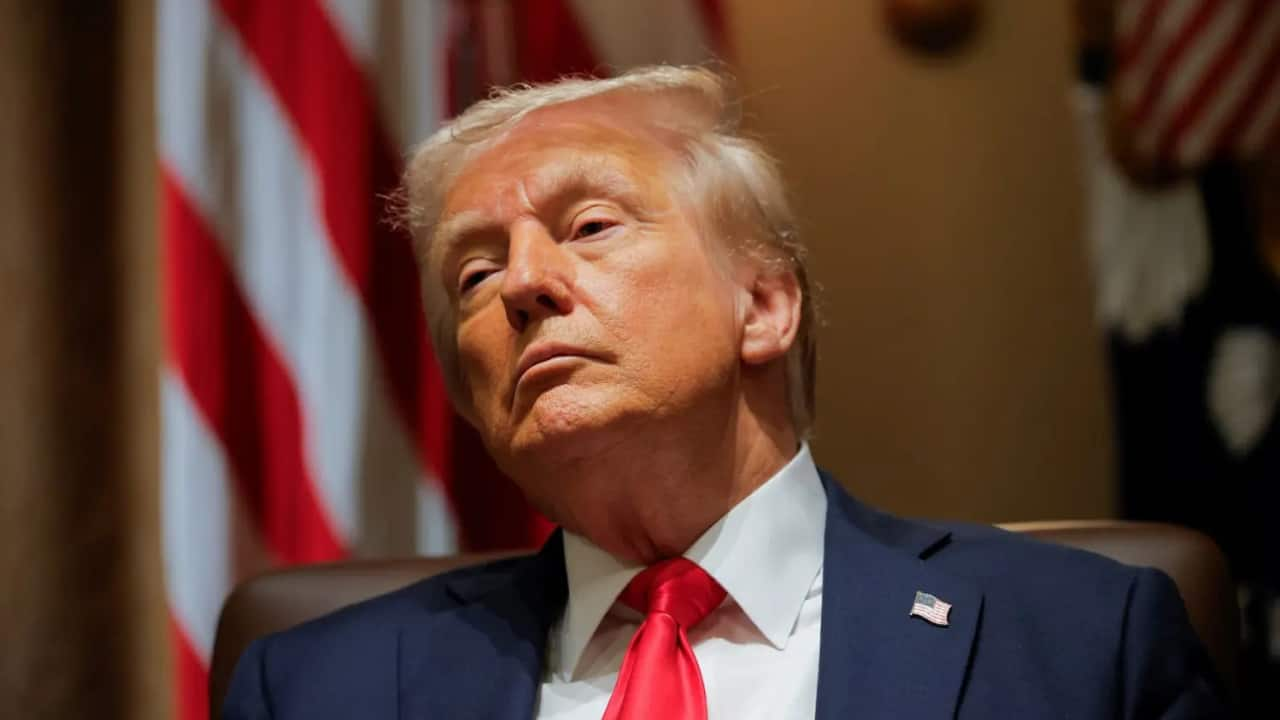To say Miles Conway had a roller coaster of a week would be an understatement. On Wednesday — the day President Donald Trump unveiled steep new tariffs — Conway, the executive officer of the Santa Fe Area Home Builders Association, was deeply concerned about what an apparent 25% levy would do to the costs of building a home, considering how much imported Canadian lumber is used by contractors. But a day later, when the White House announced Canadian lumber would be exempt from the latest round of tariffs, Conway breathed a huge sigh of relief.
“That was a big win for us,” Conway said, explaining between 80% and 85% of all the lumber the United States imports comes from its northern neighbor. A day earlier, when the new tariffs were announced without the exemptions, the price of lumber climbed 20%, Conway said — a figure that led him to fear the price of building a house was about to increase dramatically. The price was headed down again Thursday, but the preceding 24 hours had demonstrated to Conway how volatile the lumber market could be — and might be again if the Trump administration changes its mind about the exemptions.

“This is how the game of chicken played out today,” he said. “But we don’t know about tomorrow.” Conway certainly wasn’t alone among members of the local business community in fearing the impact the tariffs might have on the affordability of their products.
While many of them also dodged the worst of the potential impacts because of exemptions, some of their owners were left with a sense of confusion and apprehension about what the future will bring. Heidi Gomez, whose husband, Leopoldo Gomez, owns the Artesanos Imports Co. at 1414 Maclovia St.
in Santa Fe, underwent a whirlwind of emotions similar to what Conway felt Wednesday and Thursday. When the initial tariffs were announced, it seemed Artesanos would be hit hard, as it imports 95% of its artisan tile, light fixtures, mirrors, handcrafted furniture and other home décor and furnishings from Mexico. “ 'It’s going to kick us in the teeth,' ” Heidi Gomez recalled thinking.
A day later, when it became clear her company’s import products would be spared, she was feeling much better. But she said the experience has shaken her and left her wondering how much predictability, if any, exists for the business she and her husband have spent 65 years building. “With the uncertainty is fear,” she said, adding the Gomez family is by no means alone in feeling like it has little clarity about what might happen next.
“...
It changes on a daily basis.” Worse yet, the remaining items Artesanos imports from across the world — including from Italy, Spain, Japan and Colombia — do not appear to be exempt from the new tariffs, she said. Gomez fears that, as the trade war between the United States and much of the rest of the world picks up, the exemptions announced Thursday will be reversed, plunging her family’s business into chaos.
“I really believe it is coming our way,” she said. “But when?” When she was reached Thursday, Carol Wight, the CEO of the New Mexico Restaurant Association in Albuquerque, said she had not had time to fully study the list of imported products that would be subject to the new tariffs and those that wouldn’t. But she said she was greatly relieved to learn that two items that are essential for many restaurants in New Mexico apparently had been placed on the exempt list.
“I was talking to one of our members, who said, ‘Oh, thank God tequila and avocados are not being tariffed!' ” she said, chuckling. “Now, that may be an offhand remark, but I think it really reflects what’s important to New Mexico restaurant owners.” Wight said she didn’t want to sound flippant, especially since she fears additional tariffs could be imposed in the future if the trade war escalates.
But for one day, at least, she felt like her members had dodged a bullet from her conversations with the handful of restaurant owners she'd had time to talk to. “That was the consensus today,” she said. Kyle Abraham Bi, the owner of Reflective Jewelry at 912 Baca St.
in Santa Fe, said he was fairly confident his business would be spared the worst of the tariffs, despite being known for selling hard-to-obtain, responsibly sourced gold from Africa in many of its pieces. “As of right now, I don’t expect a big impact,” he said. “But I haven’t had time to dig into it too thoroughly.
” Most of the business Reflective Jewelry does involves materials from the United States, he said, giving Bi a sense of security about the future of his enterprise. But he said many of the stones featured in his jewelry are sent out of the country to be evaluated by experts elsewhere, and he isn’t sure if the tariffs will apply to them. “People are definitely uncertain,” he said.
In the aftermath of the tariff announcement, a possibly unlikely source emerged as one of the leading critics of the move in New Mexico. The Rio Grande Foundation, based in Albuquerque, focuses on free-market economic policy issues and rarely finds itself at odds with Trump. But it certainly did on the matter of tariffs.
On Thursday, it issued a news release strongly opposing their implementation and labeling them a tax on American consumers. “The Rio Grande Foundation supports lower taxes, not more,” the release states. “Thus, we are firmly opposed to these tariffs and support low/no tariffs in general.
” The foundation said most of the harm done by high tariffs “is inflicted on those who pay the tax, not those who impose it.” It also said the administration would have done better to try to negotiate lower tariffs on American products in other countries rather than imposing tariffs on the importation of their products to the United States. The release called tariffs a highly regressive form of taxation, meaning they affect lower-income people more than those who are wealthy.
“As a poor state New Mexicans are going to be more impacted than most by tariffs,” the release states. The foundation expressed fear the tariffs could plunge the U.S.
economy into a recession, leading to strong Democratic gains in the 2026 midterm elections. “We want a strong, Trump-led economy at that point, not a Trump-caused recession,” the release states. As she stood in the foyer of the Santa Fe Community Convention Center on Thursday during her organization’s annual Business Expo, Bridget Dixson, the president and CEO of the Santa Fe Chamber of Commerce, acknowledged she has heard a great deal of uncertainty from members of the business community about how the tariffs would affect them.
But she said she believes that anxiety is typical of what happens when a new administration takes office and begins to implement its agenda. “The business community is being cautious,” she said. “Every four years, when there is a new administration, people are cautious for the first six months to a year to see what’s going to happen.
” Dixson said there is no sky-is-falling sentiment in the Santa Fe business community over the tariffs. In fact, she said she had heard more concerns from the city’s nonprofit community, who fear the impact of federal budget cuts. Dixson said the chamber had received some phone calls from members seeking guidance on whether the tariffs apply to them and how they would be assessed.
“We’ll be discussing what type of education we might need to put forth to address that,” she said. Relieved as he was by the exemption for Canadian lumber, Conway said concerns remain about how the tariffs will affect the cost of other imported products widely used in home construction — everything from appliances, steel and stone to gypsum (used in drywall), aluminum, concrete and tile. Many folks in his industry are operating under the assumption that the tariffs will drive up the average cost of new home construction by $9,200.
That’s bad news for those looking to enter the homebuying market, Conway said. He cited a March study from the National Association of Home Builders that claims a $1,000 increase in the median price of new homes would price an additional 115,000 potential buyers out of the nationwide market. Using the $9,200 figure as a baseline, Conway said, that means approximately 1 million Americans would see their dream of home ownership evaporate as long as the tariffs are in place.
Conway said he had spoken to one builder who, fearing the worst last week, had purchased all the insulated concrete forms — essentially, foam molds into which concrete is poured to establish a building’s foundation — he could store in his warehouse before the new tariffs were announced. And some lumber suppliers were demanding cash upfront from contractors, even ones with whom they had a long-term relationship, and refusing to lock in long-term prices, he said. That kind of activity demonstrates to Conway how much uncertainty there is in his industry.
“More than anything, the housing industry appreciates stability,” he said. “When you’re putting a big deal together, you’ve got to find, like, six different sources of capital. .
.. All the stars have to align to stack all the funding sources together.
There are a lot of projects that seem more unlikely now because of what’s going on.” Elias Laban, the owner of Santa Fe’s Jakiri Fashion, doesn’t operate his business on the scale large housing developers do. But the men’s fashion entrepreneur, who launched his store at the Santa Fe Place mall just a year ago, said he feels deeply troubled by the implementation of the tariffs.
Jakiri Fashion, which sells men’s suits, shoes and accessories imported from Italy and Turkey, appears to be one of the Santa Fe businesses most vulnerable to the tariffs. Laban said he didn’t know exactly what his exposure to the tariffs would be, but he was anticipating the worst Thursday as he greeted passersby at his booth at the chamber’s Business Expo. “I’m just waiting to see what happens,” he said.
“But I’m scared and nervous.” Laban said he had little to no experience with tariffs, so he didn’t know what to expect. Hope seemed to be the default position to which he has retreated.
“I’m praying to God, praying and hoping things can change,” he said..
Business

Santa Fe businesses express uncertainty over Trump tariffs

While many Santa Fe businesses dodged the tariffs' impacts, some were still left with a sense of confusion and apprehension.



